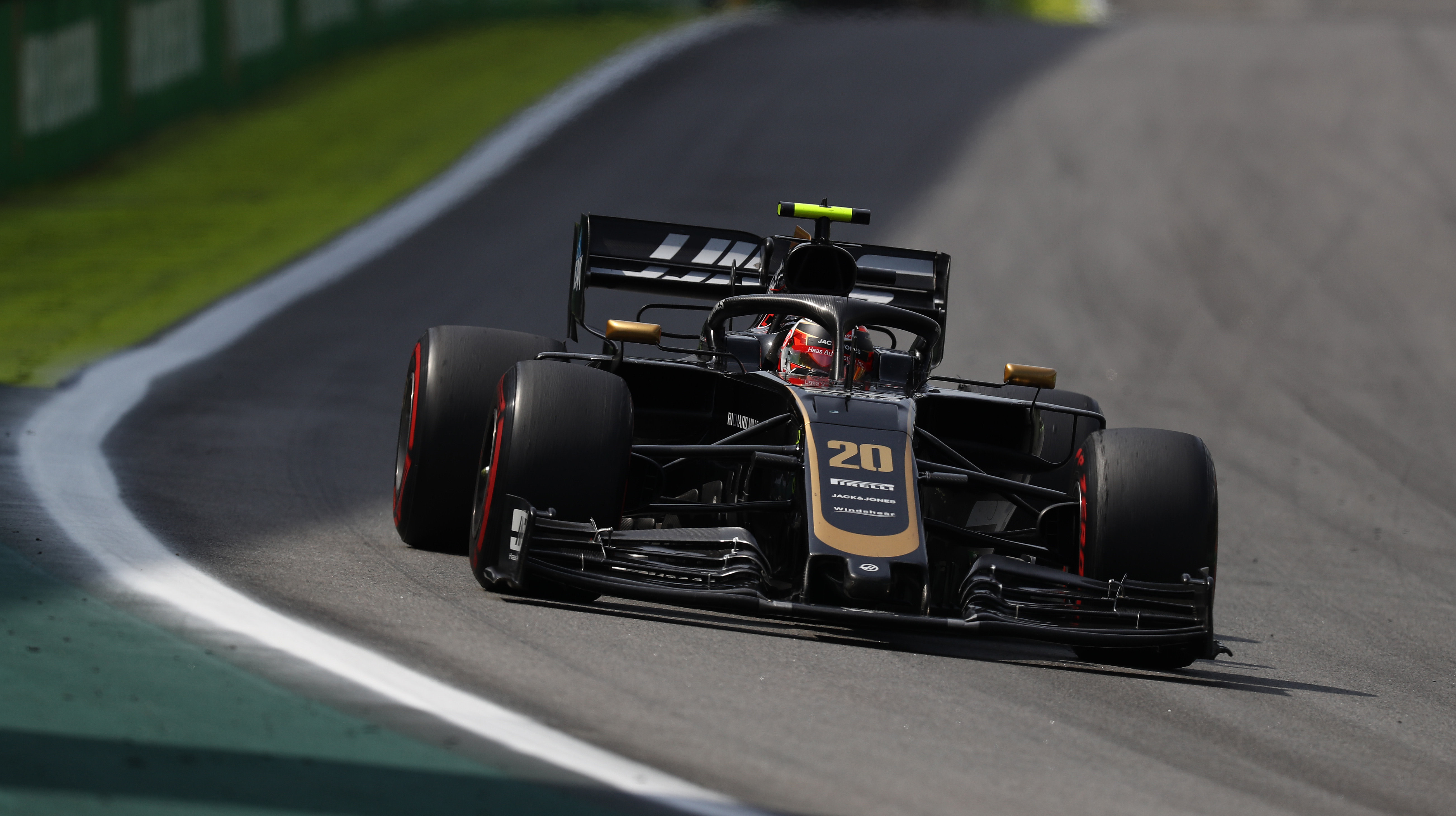Haas F1 Boss: You'd Be Naive To Think Smaller Teams Could Fight For Wins In 2021
When it comes to Formula One, we've all been under the impression that 2021 will be our year—well, maybe not our year, but the year that more than three teams will actually be able to compete due to new regulations for leveling the field. But Haas F1 boss Guenther Steiner wants you to know that the new rules won't magically make smaller teams like his competitive for wins.
The 2021 season will bring both rules changes and a budget cap to create a more competitive racing grid, which is one of the main problems F1 currently suffers from. That's easy to see by looking at 2019's win list: Of the 21 races, Mercedes won 15, while both Red Bull Racing and Ferrari each won three. There are 10 F1 teams.
But Steiner, as quoted by Motorsport.com, isn't getting overly optimistic about the competition that the 2021 rules will bring—or trying to present himself as such, even in an uncertain future for the Haas team. Steiner said it would be "naive" to think smaller teams like his would have a chance to fight for wins in 2021, because it's "not going to happen."
Here's more of Steiner's opinion, from Motorsport.com:
[A]s team owner Gene Haas considers the future of his squad in Formula 1, Steiner reckons it would be wrong to try to convince the American that 2021 will present a chance to fight near the front. [...]
"He understands that best. I don't think I can do a lot to convince him, he needs to convince himself that this is what he wants to do, that this is what he wants to use his marketing money to invest in.
"He's got a good enough understanding that if I tell him he can win in 2021, he might say 'he doesn't know what he's doing'. I would have to agree with him. So, I don't know.
"But, as I said, there is still so much open issues here that at the moment I don't know if he should make a decision now."
For a small team to compete at the front, Steiner said, the budget cap needs a "second step" because he doesn't think the payouts will allow smaller teams to reach the ceiling of the cap. That's a good point, in context.
The cap is set at $175 million per season minus driver salaries and engine costs, but that doesn't automatically bring everyone to the same level. The Mercedes F1 team was reported to have spent more than $400 million in its 2018 title-winning season, and in 2013, NBC Sports reported the Ferrari team's annual budget to be $470 million. In 2014, the New York Times wrote that the least-funded teams in F1 spent about $80 million per year. That's way under the budget ceiling, while others are way over.
Given that, here's more from Steiner, via Motorsport.com:
"I don't think any of the smaller teams are prepared to spend that amount of money because there is no return on investment at some stage.
"So, for sure it should close the gap in maybe already in '22, but in '23, but a good step would be to make a second go at the numbers and I think nobody would disagree with that."
Like most other things we set high expectations for, Steiner doesn't believe that the 2021 F1 rules be the spiritual motorsport awakening we all hope they will be.
He's got a good point, too. Sky-high expectations are rarely met, no matter the subject matter, so it's often better not to set them in the first place.
